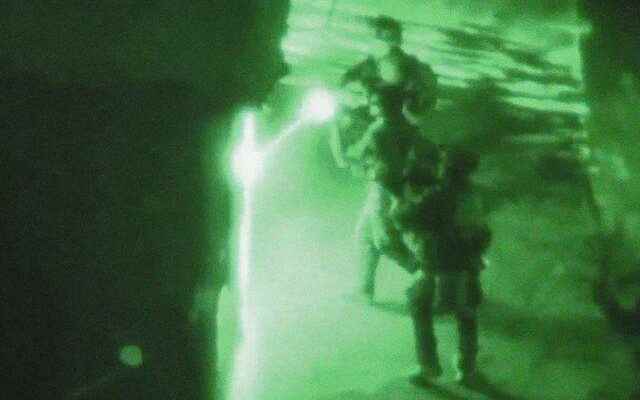A BBC study found that British Special Air Service (SAS) soldiers in Afghanistan repeatedly killed detainees and unarmed persons under suspicious circumstances.
Military documents obtained by the BBC indicate that one of the SAS troops may have illegally killed 54 people in a 6-month period between 2010 and 2011.
According to the investigation by the BBC Panorama team, Sir Mark Carleton-Smith, the former head of the UK’s special forces, was informed of the alleged illegal murders at this time, but did not share with the authorities some information that could be used as evidence, even when the murder investigation into the SAS unit was launched by the Royal Military Police.
General Carleton-Smith, who took the post of chief of the army after being Chief of Special Forces and left the post last month, refused to answer the BBC’s questions on the matter.
Britain’s Ministry of Defense said that British soldiers “officed bravely and in a highly professional manner” in Afghanistan.
The ministry said it could not comment on the allegations, but said that this was not an indication that it accepted the accuracy of the allegations.
The BBC Panorama team, which analyzed hundreds of pages of SAS documents within the scope of the research, reported that some of these documents belonged to the ‘kill or capture’ operation carried out by a SAS fleet in the Helmand region of Afghanistan in 2010 and 2011.
Some people who were on duty during the operation and spoke to the BBC shared that SAS soldiers killed unarmed people during night-time raids and then left unregistered weapons at the scene as evidence.
They added that the SAS soldiers, who were on duty with the BBC, were competing with each other and with other units to kill people.
Senior officials were aware of the situation
According to the research of the BBC, it was revealed in the e-mails shared within the SAS association that high-level officials were aware of this situation, but did not report the situation to the police, although they had legal obligations.
In the e-mails, it was determined that the authorities used expressions such as “the latest massacre” and “really unbelievable”.
‘Kill it or catch it’
The BBC’s research examines a six-month operation of a single SAS unit that began in Afghanistan in November 2010.
Soldiers serving in Helmand province, which was one of the most dangerous regions of Afghanistan at that time, carried out deliberate detention operations, or ‘kill or capture’ raids, and continued to work to capture the Taliban commanders who had been specified as targets beforehand, and to prevent the making of bombs.
Multiple sources involved in the planning of these operations told the BBC that this process was very problematic and that civilians were often targeted.
In 2011, a source in Helmand who was authorized to organize the raids said, “Intelligence officers were making lists of people they thought were members of the Taliban very quickly. These lists were then briefly discussed and then handed over to the troops,” continues:
“Everything was done very quickly, there was a lot of pressure on everyone. It was necessary to make a decision about the people added to the list as soon as possible.”
Buildings were searched in night raids
In night raids, military units targeted a building and ordered the people inside the building to come out. After the soldiers tied the hands of these people and searched their superiors, they searched the inside of the building accompanied by one of them.
In the raids organized by the unit examined by the research, allegations that the detainees threatened the soldiers with concealed weapons when they entered the building emerged, which worried the commanders.
Against these threats, the number of soldiers killing detainees was increasing. The people who were killed were later revealed to be unarmed, and there were allegations that the soldiers deliberately left their weapons at the scene to confirm the deaths.
These allegations worried the authorities so much that they started to inform their managers in writing in April 2011.
Authorities said “people were deliberately killed after being detained” and “evidence was fabricated to confirm this”.
One of the officials, the Assistant Staff Officer of the British Special Forces, said the SAS may be implementing a policy of “killing men of fighting age even if they do not pose a direct threat”, adding that the allegations are “both ethically and legally untenable”.
Series of suspicious deaths
Examining documents from the night raids organized by SAS, the BBC Panorama team found a series of evidence of Afghan men allegedly killed after being detained.
It was determined that hundreds of people were killed during the 6-month mission of the SAS unit that was examined.
There were no deaths or injuries in the SAS team.
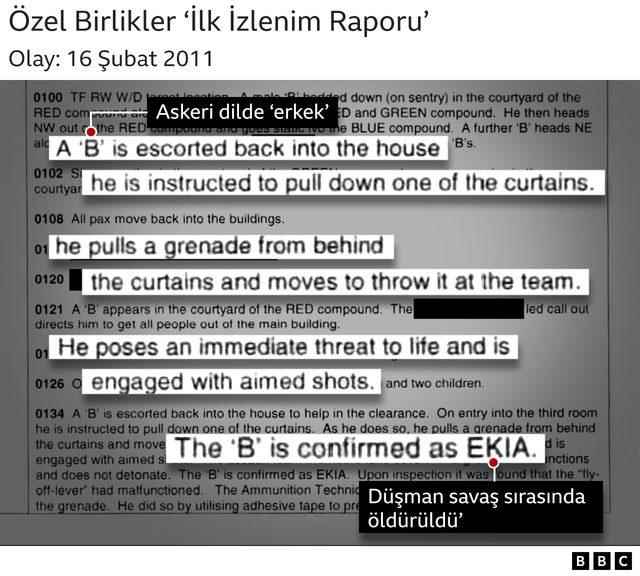
“The detainees should not have died in this way”
A senior military official speaking to the BBC said the evidence about the team in question was “extremely worrying”:
“The detainees were not supposed to be found dead like this. It was worrying that it happened so many times. Even then it was clear that something was wrong.”
As concerns grew, a special investigation was launched to examine the SAS troop.
However, it turned out that the investigator, who visited the region and interviewed the team, did not go to the night raids and did not meet with people who claimed to have witnessed the incident.
The BBC also found that the statements and documents containing the allegations in question had been removed to special files with limited access, which they called “anecdotal information about extrajudicial killings”.
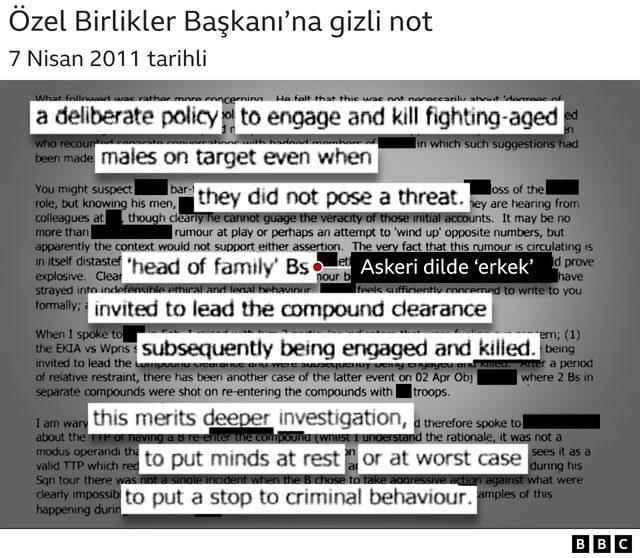
The SAS unit was deployed to Afghanistan for 6 months again in 2012 after the investigation.
Colonel Oliver Lee, who served as the Commander of the Royal Marines in Afghanistan in 2011, said the allegations of abuse uncovered by the BBC were “extremely surprising and unacceptable” and needed to be investigated.
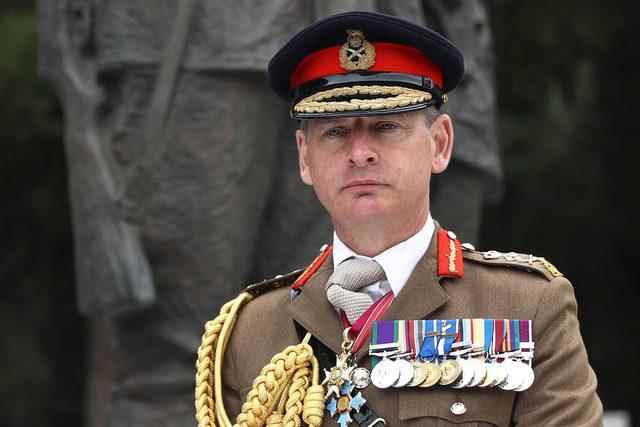
BBC visited the area
The BBC visited homes that were raided by the SAS association in 2010 and 2011.
One of them was in the village of Nad Ali in Helmand province. In this house, 9 Afghan men, including a teenage boy, were killed in the early morning hours of 7 February 2011.
SAS soldiers stated that they approached the house by helicopter and killed everyone to defend themselves when the ‘rebels’ inside fired at them.
Only three AK-47 guns were found in the house after the incident. It was noted that the number of guns was less than the number of people in the house.
Multiple bullet holes were detected inside the house, close to the ground. Ballistic weapons experts stated that this indicates that fire was opened from the top and that there was not actually a conflict.
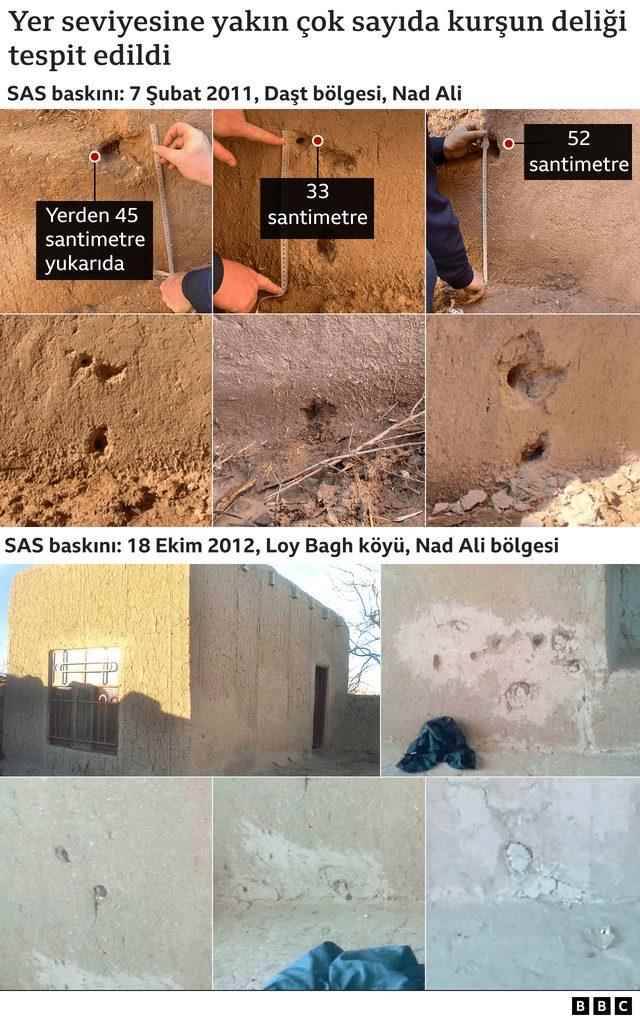
In 2014, the Royal Military Police team launched an investigation called Operation Northmoor and re-examined allegations of British troops committing crimes in Afghanistan.
However, speaking to the BBC, the officials responsible for the investigation shared that they were blocked by the British Army while they were looking for evidence.
Operation Northmoor was shut down in 2019.
The British Ministry of Defense stated that there was no evidence of any crime being committed in Afghanistan and that the soldiers were working to the highest standards.
